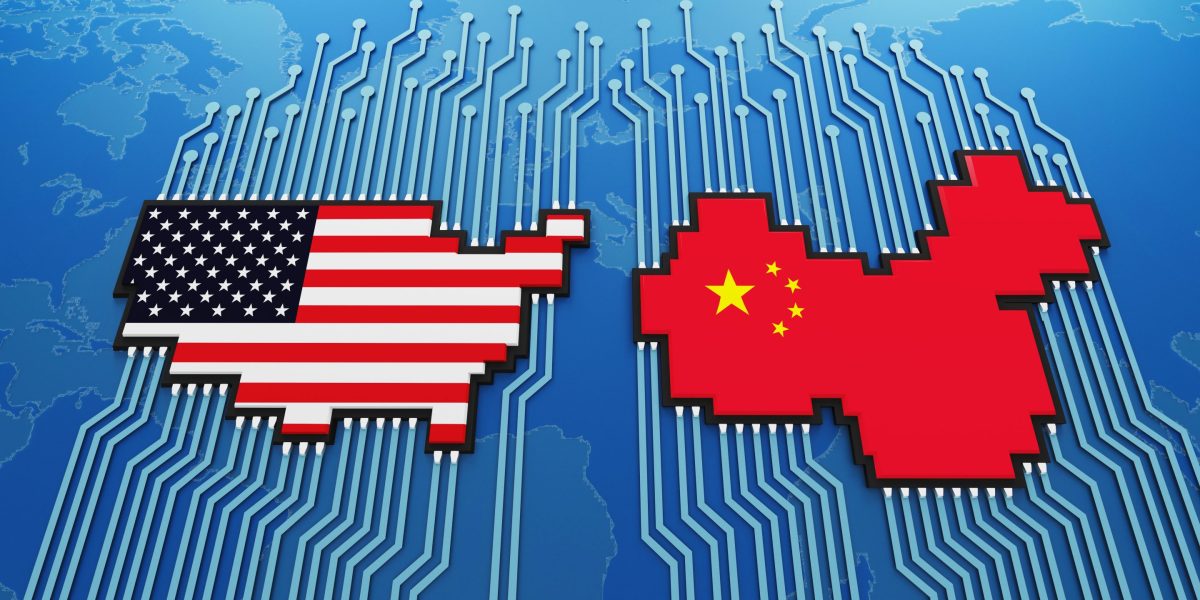Good morning. Clay Chandler here, writing from Hong Kong.
On Tuesday, senior officials from the U.S. and China met in Geneva for a first-ever discussion about how they might work together to ensure emerging artificial intelligence technologies don’t become existential risks.
Ahead of the meeting, officials from both countries said they worry counterparts will use AI to sow disinformation, establish military dominance, and put algorithms rather than people in charge of critical national security decisions.
Taiwanese AI pioneer Kai-Fu Lee was among the first to warn that AI and data could tip the global power balance. In his 2018 book, AI Superpowers, Lee fretted that “many compare the ‘AI race’ of today to the space race of the 1960s or, even worse, to the Cold War arms race that created ever more powerful weapons of mass destruction.”
At the time, the conventional wisdom was that China had the edge in the AI arms race; it has more people than the U.S. (hence more data), and the sector had massive government support.
But the U.S. has been the clear AI front-runner since November 2022, when OpenAI released ChatGPT. The large language model chatbot now claims more than 180 million users and is locked in competition with domestic rivals including Google’s Gemini, Meta’s Llama, and Anthropic’s Claude 3.
China’s nearest equivalent to ChatGPT is Ernie Bot, a large language chatbot launched by search giant Baidu last August. Baidu says Ernie has more than 200 million users and is faster than ChatGPT4. Chinese tech giants including Alibaba, SenseTime, and Tencent have rolled out chatbots, too—to mostly mixed reviews.
China has about 260 generative AI startups, according to ITjuzi. The Financial Times recently profiled four firms valued between $1.2 billion and $2.5 billion: Zhipu AI, Moonshot AI, Minimax, and 01.ai (founded by Lee). But China’s generative AI startups lag U.S. counterparts in technological development and fundraising.
One key difference between how the U.S. and China run the AI arms race: Chinese firms must operate within a strict regulatory framework designed to bolster the legitimacy of the state but also achieve other aims, including protecting privacy, guarding against deepfakes, and preventing delivery companies from using algorithms to overwork employees.
That’s a far cry from the U.S., where on Wednesday a bipartisan group of U.S. senators led by Chuck Schumer punted on AI safety laws, citing concerns about “stifling innovation.” Instead, the committee called for a $32 billion per year increase on federal spending on AI. Schumer described the increase as “surge emergency funding to cement America’s dominance in AI” including “outcompeting China.”
For now, at least, Americans seem determined to maintain their lead in the global AI arms race even at the risk of other homegrown hazards.
More news below
Clay Chandler
[email protected]
Follow on LinkedIn
TOP NEWS
Cruise control
GM is exerting much greater day-to-day control over Cruise, its self-driving car division, following an accident last October in which a robotaxi dragged a pedestrian. Employees working for Cruise at the time tell Fortune that Cruise’s then-leadership tried to move past the incident too quickly, pushing to close off crisis team meetings just one day after the accident. GM is now moving Cruise away from a startup mentality, giving the safety team veto power over any rollout. Fortune
Reddit’s AI deal
Shares in Reddit jumped by around 11% in after-hours trading after the social media company granted access to its data to ChatGPT developer OpenAI. Reddit will also get OpenAI’s help to bring AI features to its platform. OpenAI CEO Sam Altman has close ties to Reddit: He was one of the company’s largest shareholders at the time of its IPO, and briefly served as the platform’s interim CEO. Bloomberg
CFO deepfake
U.K. engineering group Arup was the victim of a widely-reported AI-enabled fraud earlier this year, in which a deepfaked version of the company’s CFO was used to order money transfers to Hong Kong bank accounts. The company lost about $25 million to scammers. Experts say companies will need additional employee training and more identity verification methods to prevent future deepfake scams. Financial Times
AROUND THE WATERCOOLER
Unmarried millennials are twice as likely as boomers to buy homes solo—and 10 times as likely to buy with a friend by Alicia Adamczyk
BlackRock’s ‘boy wonder’ turned COO sees a ‘whole new world’ from generative AI: ‘Most significant … evolution, revolution of my 30-year career’ by Paolo Confino
Female athletes are the most effective influencers—and brands like Skims and Nike are reaping the benefits by Emma Hinchliffe and Joseph Abrams
This edition of CEO Daily was curated by Nicholas Gordon.


